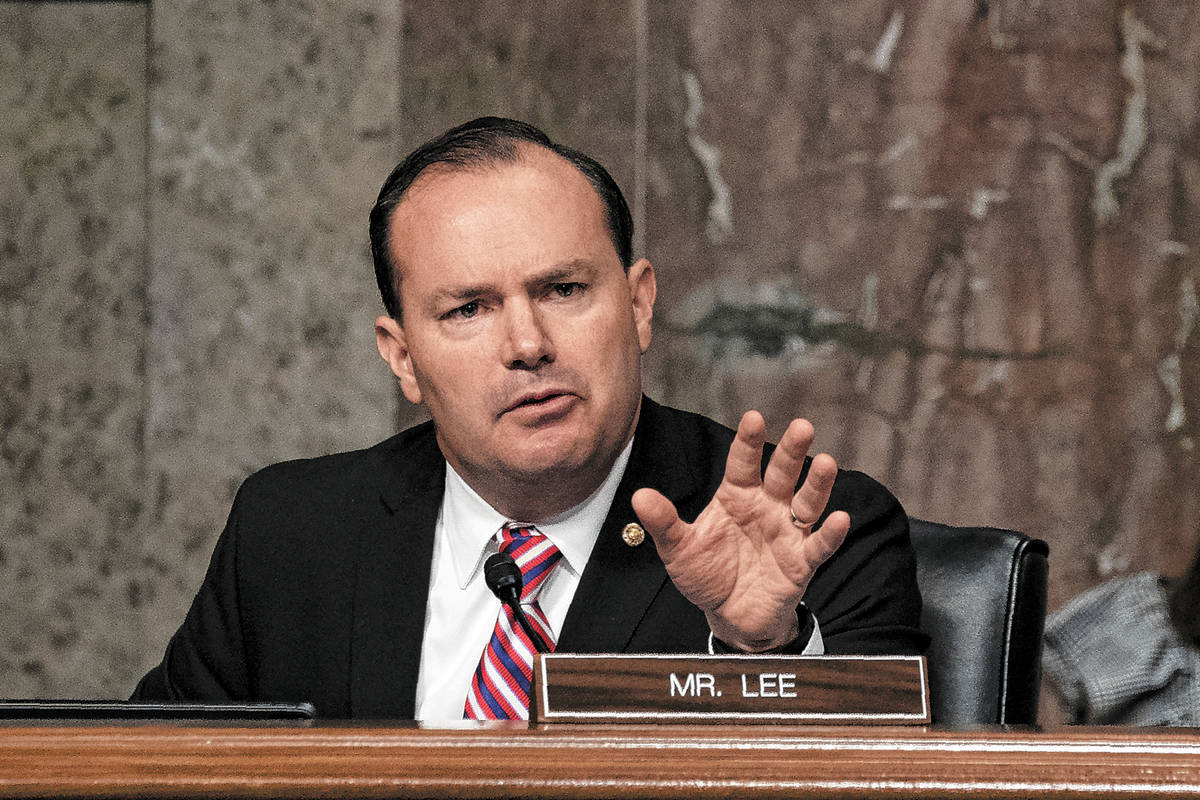JONAH GOLDBERG: Is America really a democracy?
Sen. Mike Lee, R-Utah, has been tweeting some interesting things. During Wednesday night’s vice presidential debate, Lee declared on Twitter, “We’re not a democracy.” He followed up by tweeting, “Democracy isn’t the objective; liberty, peace and prospefity [sic] are. We want the human condition to flourish. Rank democracy can thwart that.”
Suffice it to say a great many people did not sigh with relief at this clarification. Maybe they should have, at least a little. Let’s unpack things.
In the colloquial and conventional sense, Lee is wrong. We are a democracy insofar as our top leaders, including the good senator, are elected democratically. But Lee is a smart, decent, patriotic man with a deep understanding of the Constitution, so he clearly knows that.
Indeed, Lee is on firmer ground in the realm of political philosophy and political science. We are not a pure (or what he calls “rank”) democracy — nor should anyone want us to be. As I often say, in a pure democracy, 51 percent of the people can pee in the cornflakes of 49 percent of the people. The ancient Greeks came up with the word “ochlocracy,” or rule of the masses or mob, to describe the despotism of the many as opposed to despotism of one absolute ruler, aka tyranny.
Eventually, ochlocracy was replaced with the synonymous phrase “tyranny of the majority.” The Founders, well aware of the persecution of religious minorities in Europe, put mechanisms in the Constitution to hold such things at bay.
The Bill of Rights is Exhibit A. Barring some horrible repeal or amendment, the Constitution protects certain rights from the tyrannical vicissitudes of the majority. Even unconstitutional laws harming a single solitary person — you, for instance — are proscribed. Because, to paraphrase former President Calvin Coolidge, one person with the Constitution on his side is a majority.
Lee was making a case that’s popular on the right and usually goes like this: “We are not a democracy, we are a republic.” Or, as Lee put it on Twitter: “The word ‘democracy’ appears nowhere in the Constitution, perhaps because our form of government is not a democracy. It’s a constitutional republic. To me it matters. It should matter to anyone who worries about the excessive accumulation of power in the hands of the few.”
The etymological flaw in this argument is that “republic,” according to the Founders, basically meant “democracy” as we mean it today, and it was used as an alternative to monarchy. Still, I am entirely with Lee philosophically. Liberty is vastly more important than democracy. History is full of examples of democrats voting for tyranny, or at least voting to grease the skids for it.
But I have my disagreements with Lee as well. Democracy isn’t just a procedural word for casting ballots. It’s the word we use to describe an entire system of liberty.
When we speak of “democratic nations,” we don’t just mean that they hold elections. We mean that they are free countries.
More importantly, there is no alternative to democracy yet conceived that does a better job protecting freedom over the long term. If you’re concerned with protecting future generations from the accumulated power of the few, you should be bolstering faith in democracy, not talking it down. Particularly at a moment when many intellectuals are flirting with reactionary alternatives to it, and the president is saying that any election result he doesn’t like is proof that the system is rigged.
Jonah Goldberg is editor-in-chief of The Dispatch and the host of The Remnant podcast. His Twitter handle is @JonahDispatch.

















